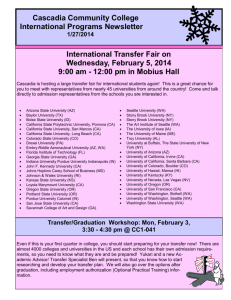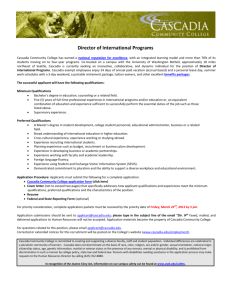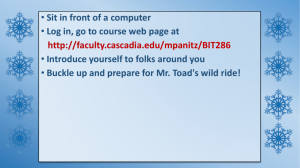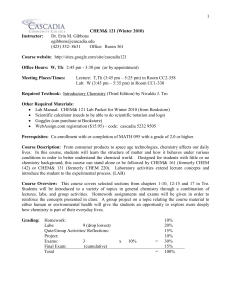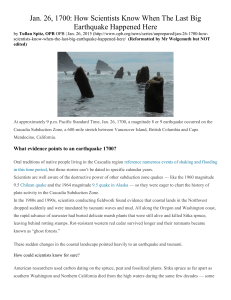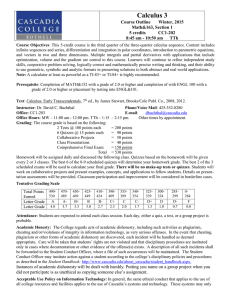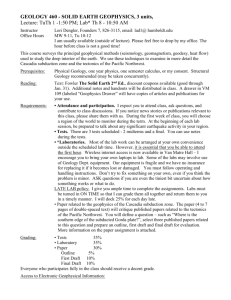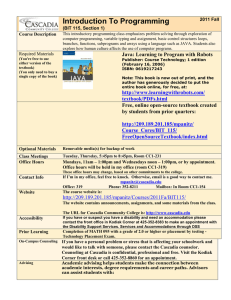CASCADIA COLLEGE
advertisement
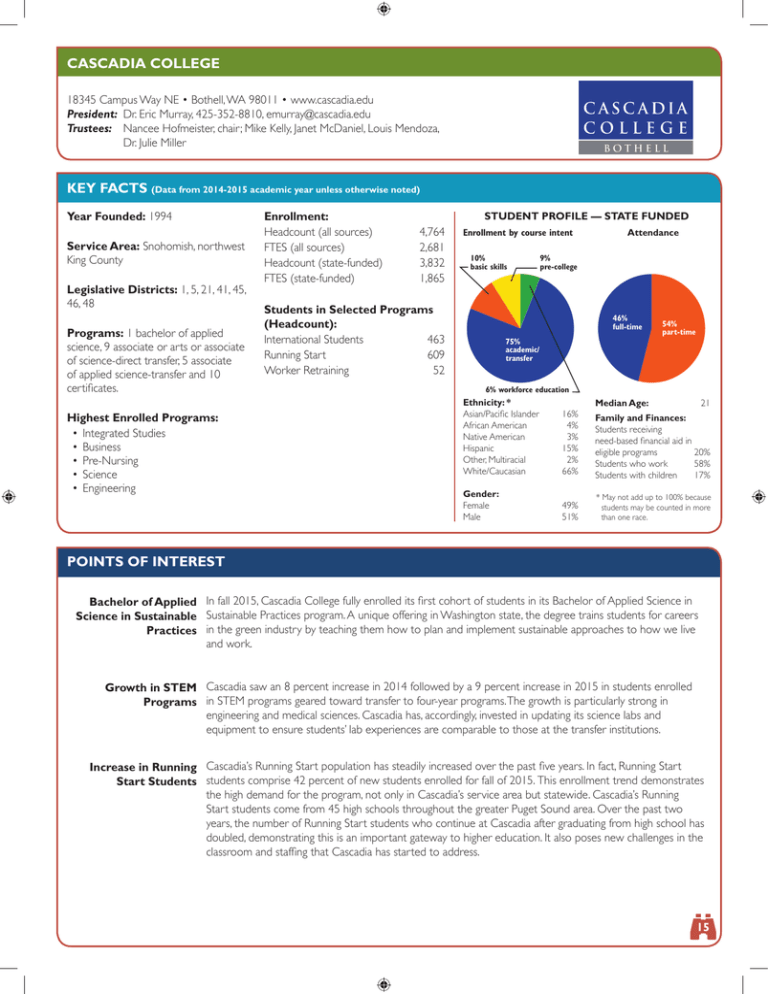
CASCADIA COLLEGE 18345 Campus Way NE • Bothell, WA 98011 • www.cascadia.edu President: Dr. Eric Murray, 425-352-8810, emurray@cascadia.edu Trustees: Nancee Hofmeister, chair; Mike Kelly, Janet McDaniel, Louis Mendoza, Dr. Julie Miller KEY FACTS (Data from 2014-2015 academic year unless otherwise noted) Year Founded: 1994 Service Area: Snohomish, northwest King County Legislative Districts: 1, 5, 21, 41, 45, 46, 48 Programs: 1 bachelor of applied science, 9 associate or arts or associate of science-direct transfer, 5 associate of applied science-transfer and 10 certificates. Highest Enrolled Programs: • Integrated Studies • Business • Pre-Nursing • Science • Engineering Enrollment: Headcount (all sources) FTES (all sources) Headcount (state-funded) FTES (state-funded) 4,764 2,681 3,832 1,865 Students in Selected Programs (Headcount): International Students 463 Running Start 609 Worker Retraining 52 STUDENT PROFILE — STATE FUNDED Enrollment by course intent Attendance 6+75+109 54+46 10% basic skills 9% pre-college 46% full-time 75% academic/ transfer 54% part-time 6% workforce education Ethnicity: * Asian/Pacific Islander 16% African American 4% Native American 3% Hispanic15% Other, Multiracial 2% White/Caucasian66% Median Age:21 Gender: Female49% Male51% * May not add up to 100% because students may be counted in more than one race. Family and Finances: Students receiving need-based financial aid in eligible programs 20% Students who work 58% Students with children 17% POINTS OF INTEREST Bachelor of Applied In fall 2015, Cascadia College fully enrolled its first cohort of students in its Bachelor of Applied Science in Science in Sustainable Sustainable Practices program. A unique offering in Washington state, the degree trains students for careers Practices in the green industry by teaching them how to plan and implement sustainable approaches to how we live and work. Growth in STEM Cascadia saw an 8 percent increase in 2014 followed by a 9 percent increase in 2015 in students enrolled Programs in STEM programs geared toward transfer to four-year programs. The growth is particularly strong in engineering and medical sciences. Cascadia has, accordingly, invested in updating its science labs and equipment to ensure students’ lab experiences are comparable to those at the transfer institutions. Increase in Running Cascadia’s Running Start population has steadily increased over the past five years. In fact, Running Start Start Students students comprise 42 percent of new students enrolled for fall of 2015. This enrollment trend demonstrates the high demand for the program, not only in Cascadia’s service area but statewide. Cascadia’s Running Start students come from 45 high schools throughout the greater Puget Sound area. Over the past two years, the number of Running Start students who continue at Cascadia after graduating from high school has doubled, demonstrating this is an important gateway to higher education. It also poses new challenges in the classroom and staffing that Cascadia has started to address. 15

